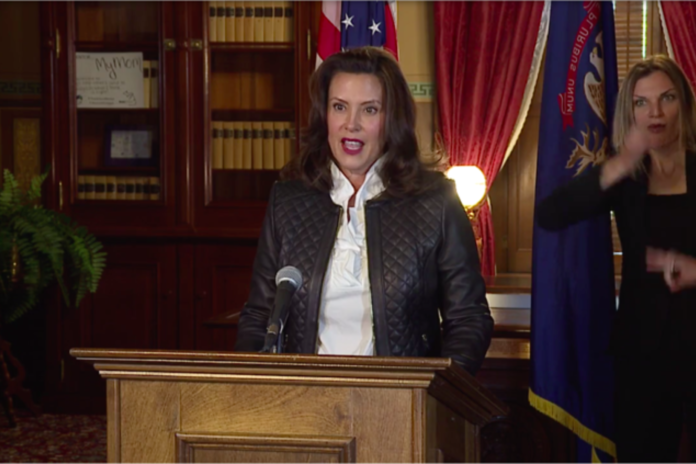(The Center Square) – The Michigan Supreme Court on Monday rejected Gov. Gretchen Whitmer’s statement asserting her unconstitutional orders still hold power over Michiganders through Oct. 30.
Whitmer previously claimed her executive orders retained the force of law for 21 days after the court’s Oct. 2 ruling.
Whitmer on Oct. 5 had asked the court for clarification, and the state’s top court answered.
“As stated in In re Certified Questions, the Emergency Powers of the Governor Act is incompatible with the Constitution of our state, and therefore, executive orders issued under that act are of no continuing legal effect,” the court wrote in the Monday decision.
The Senate last week passed several bills intending to replace Whitmer’s wide-reaching orders: allowing local governments to meet electronically during the COVID-19 pandemic; extending unemployment benefits; and barring nursing homes from caring for COVID-19 patients unless the building has a “designated area” to care for those patients.
The chamber tied two bills: a six-week extension of unemployment assistance, along with proposals aiming to give businesses COVID-19 liability shields for some lawsuits.
The tactic gives the first-term Democrat two options if they reach her desk: sign or veto both.
Whitmer on Monday said of the above bills, “It is my hope when the House reconvenes tomorrow they break that tie bar.”
The House was expected to meet Tuesday to patch a framework that legally replaces many of Whitmer’s orders.
Since Whitmer’s orders were voided, she turned to her backup authority, the Michigan Department of Health and Human Services.
MDHHS has issued a statewide mask order, COVID-19 school disclosure requirements, and visitation restrictions on congregate care and residential facilities, among others that mirror her orders.
The MSC determination means Whitmer needs the GOP-led Legislature’s help if the groups want to respond to the COVID-19 pandemic with similar orders that were thought to be legal since April 30.

















